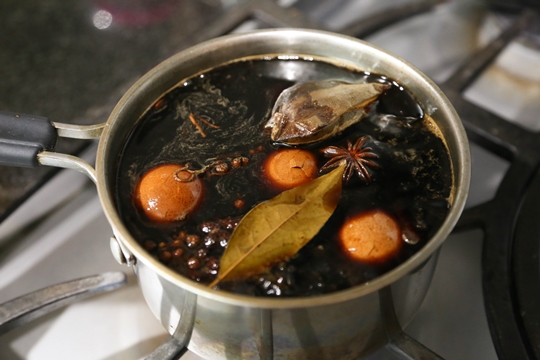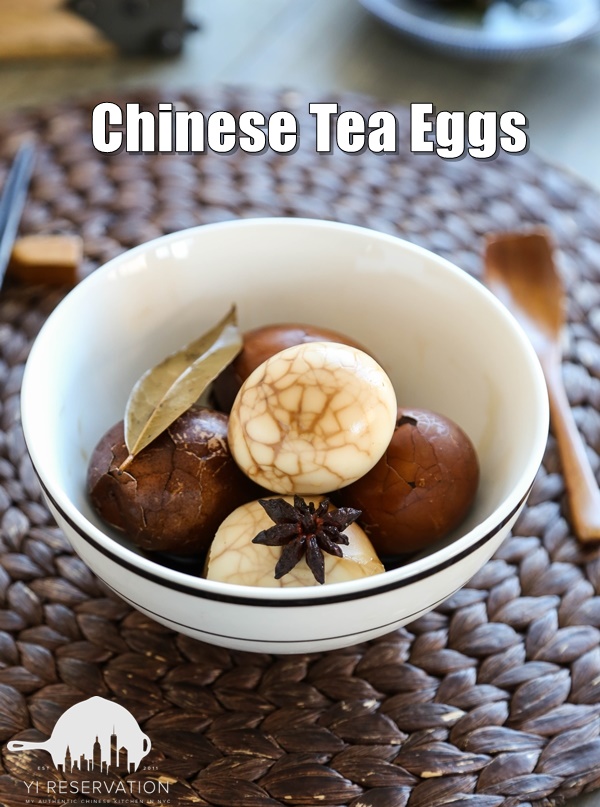Easy Chinese Tea Eggs 茶葉蛋
Warning: Parameter 2 to wp_hide_post_Public::query_posts_join() expected to be a reference, value given in /home/yirese5/public_html/wp-includes/class-wp-hook.php on line 287
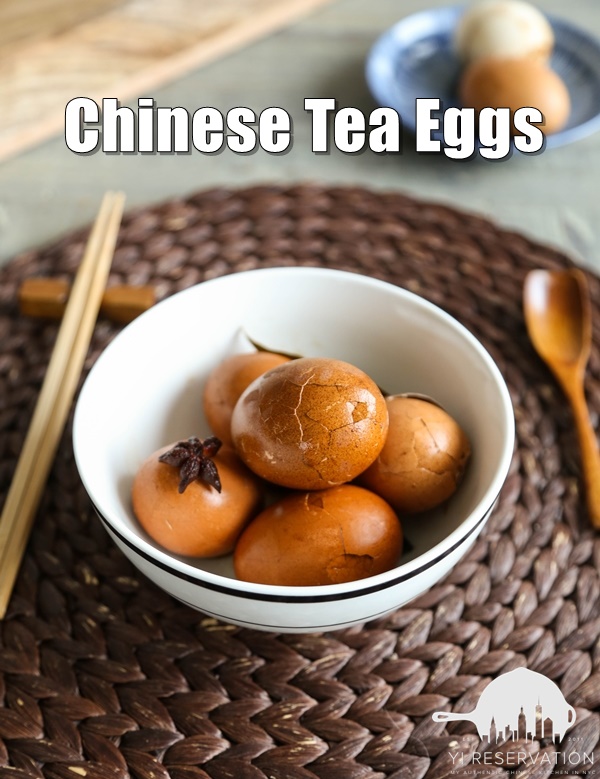
For those of you who travel a lot, you know that street food is more than just a quick and delicious way to fill up your tummy but a unique way to learn a new culture from different part of the world.
And there is no exception when it comes to Chinese culinary culture.
One good example is today’s easy and delicious Five Spice Chinese tea eggs 茶葉蛋. a popular Chinese street food often sold along the busy sidewalk or at a wet market food stand.
The point is, tea eggs are ubiquitous in most parts of China just like hot dog can be found in most parts of the U.S.
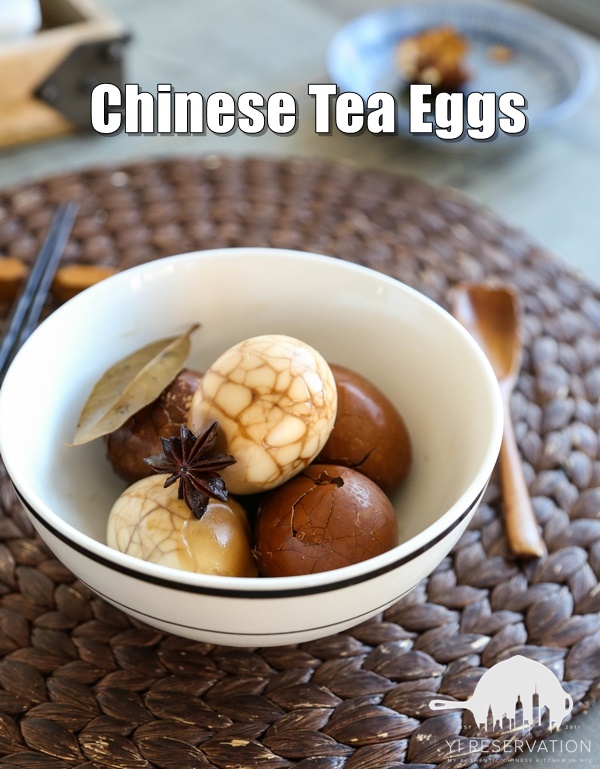
There are tons of regional variations on tea eggs but all of them are based on an important Chinese cooking technique called Lu 滷, aka braising food in a savory and fragrant spice-infused aromatic liquid aka lu shui 滷水.
A basic aromatic liquid can be made using five-spice powder and water or stock but there are more sophisticated versions where more than 30 spices are used.
The technique was first developed hundreds of years ago to flavor ingredients that were bland (i.e. hard boiled eggs and tofu) or otherwise of undesirable taste (gamy meat and offal).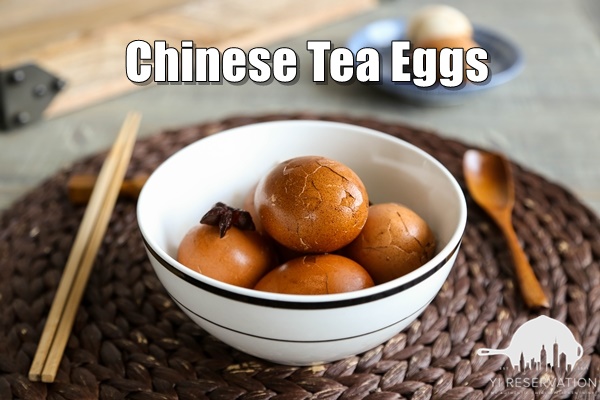
Overtime, this cooking method slowly evolved into traditional dishes with a wide ranging of regional styles and flavors.
If are not familiar with this technique, I strongly encourage you ready this detailed article I wrote sometime ago.
Notes on Chinese Tea Eggs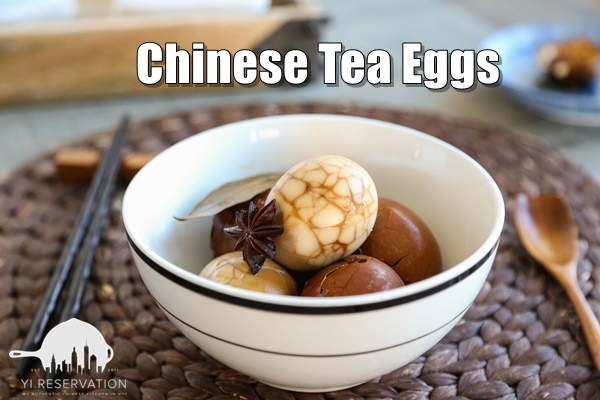
As I mentioned earlier, there is no one standard recipe so different types of tea and spices are used to make the aromatic liquid.
The version I am sharing is based on home made five spice combination.
The most common tea types are black tea and Onlong tea such as Tieguanyin.
Also, it’s worth noting that the loose tea leaves are always preferred but if you don’t have them handy, tea bags are also perfectly acceptable.
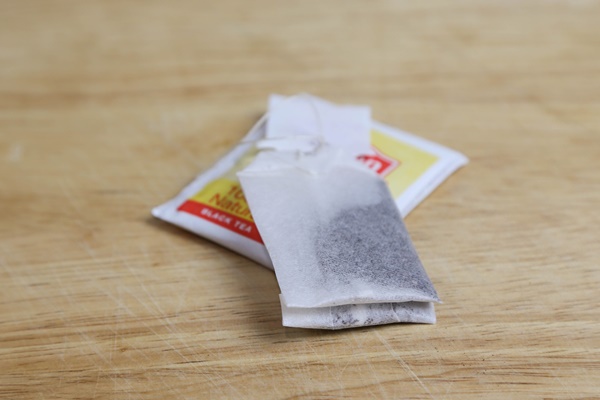
While there are many regional variations, all the recipes pretty much follow this same flow:
Hard boiled Eggs -> Make aromatic liquid -> Crack the eggs -> Cook the egg in the aromatic liquid -> Soak overnight
Some recipes might ask you to cook the eggs in the aromatic liquid for hours and serve hot. While that’s how the street food vendors normally keep their eggs warm on the street, the long boiling actually makes the eggs hard and dry. I personally prefer to just soak my eggs in the liquid overnight to get more flavor in the eggs.
If you are not too familiar with all the five dry spices used in this recipe, use the following image as a reference.
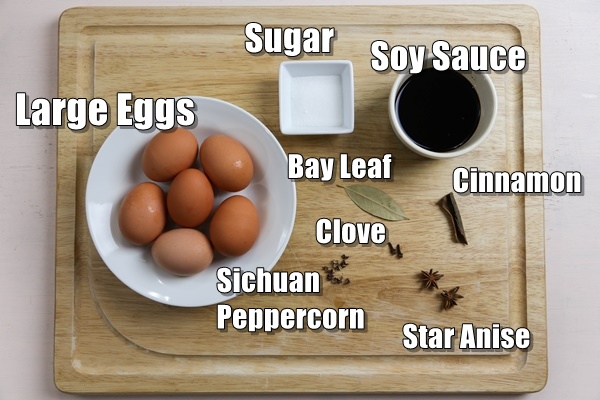
On the other hand, if you’ve been working with herbs and spices, I encourage you to try exploring different combinations of spices to create your own aromatic liquid. A good start point will be here.
Lastly, if you plan to make tea eggs regularly, you can store the aromatic liquid in a fridge (up to 3 days) or in the freezer (up to 3 months) and re-use in the future.
The catch is you have to constantly remove the old spices and replace with fresh ones. Also add more salt or soy sauce once in a while to maintain the saltiness.
Step by step recipe
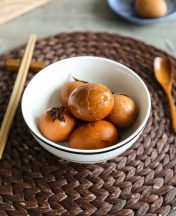
Yield: 6 eggs
Prep Time: 5 minutes
Cook Time: 30 minutes
Total Time: 35 minutes
Ingredients:
- 6 - 8 large eggs
- 1/2 cup soy sauce
- 1cup water
- 1tbsp sugar
- 1/2tsp salt or to taste
Spices:
- 1 black oolong tea/black tea bag (use loose tea leaf if available)
- 2 star anise
- 1" cinnamon
- 2 clove (optional)
- 1 bay leaf
- 1/2 tsp Sichuan peppercorn
Directions:
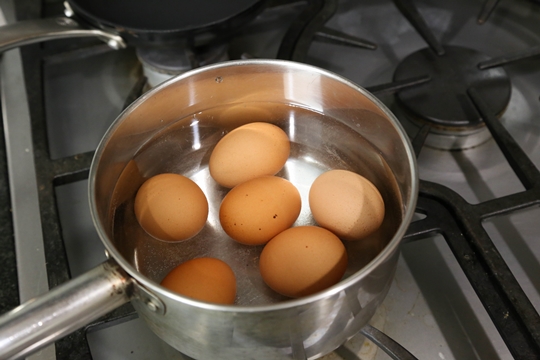 Transfer the boiled the eggs to a bowl of cold water and let the eggs cool to touch.
Transfer the boiled the eggs to a bowl of cold water and let the eggs cool to touch.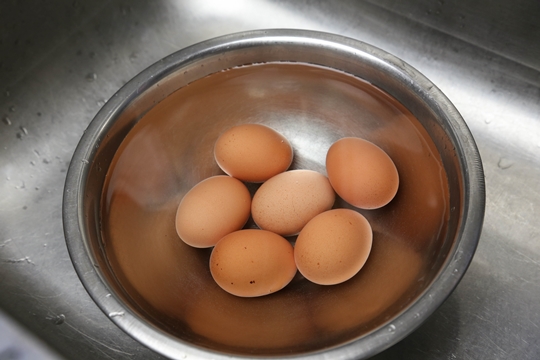 Gently crack the egg shells against your countertop without breaking the eggs or peeling off the shell.
Gently crack the egg shells against your countertop without breaking the eggs or peeling off the shell.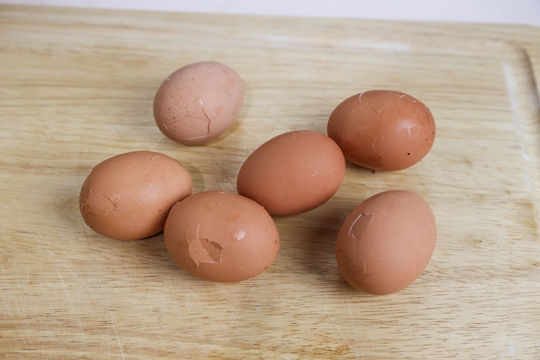 To make the aromatic liquid (aka lu shui 滷水), combine all the ingredients besides the eggs in a stock pot. Bring to a boil and, with a lid on, let it simmer for 30-60 minutes to extract out the aroma.
To make the aromatic liquid (aka lu shui 滷水), combine all the ingredients besides the eggs in a stock pot. Bring to a boil and, with a lid on, let it simmer for 30-60 minutes to extract out the aroma.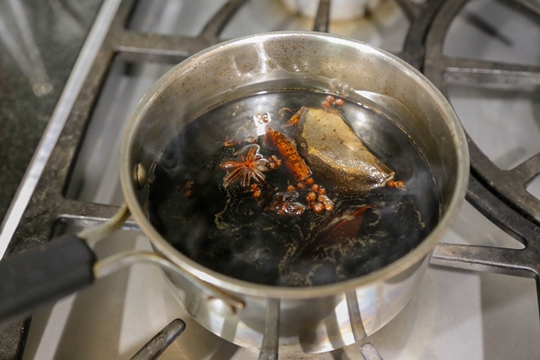 Then, transfer the cracked eggs to the aromatic liquid and continue boil under medium-low heat for another 30 minutes. Shut off the heat and let the eggs soak overnight.
Then, transfer the cracked eggs to the aromatic liquid and continue boil under medium-low heat for another 30 minutes. Shut off the heat and let the eggs soak overnight.